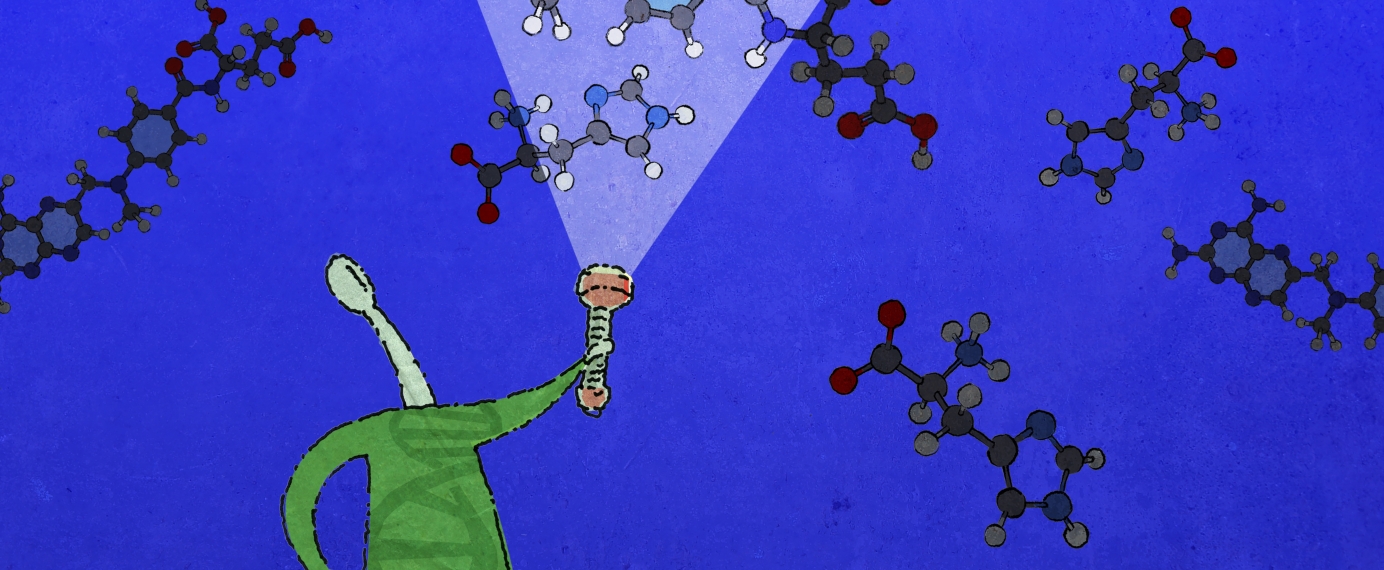Metabolism

Molecule illustration.
Steven Lee/Whitehead Institute
Metabolism is the sum of life-sustaining chemical reactions in cells, including those that create energy and build cellular structures. But malfunctioning metabolism can contribute to many diseases. Our researchers are at the forefront of efforts to investigate metabolic function and understand how it contributes to both disease and aging. And they are pinpointing ways to intervene in metabolic processes to prevent and treat serious illness.
Jing-Ke Weng is developing new powerful approaches to explore and understand the astonishing variety of specialized metabolic systems plants have evolved to help them adapt to their environments, attract pollinators, and protect themselves from pests; and he is working to replicate the chemicals created by those metabolic systems and adapt them for human benefit. Harvey Lodish has made fundamental discoveries in the way that hormones regulate fatty acid and glucose metabolism—key to better understanding the complex processes at work in metabolism-related disease—and has helped explain when and how the body produces beneficial brown fat cells. And Gerald Fink has used whole genome profiling to identify metabolic pathways responsible for fungal virulence and provide new targets for drugs that are specific to pathogenic fungi.
Learn more about our work on Metabolism—as well as related research in the realms of Cancer, Plant Biology, Genetics & Genomics, and Regeneration and Cell Dynamics.